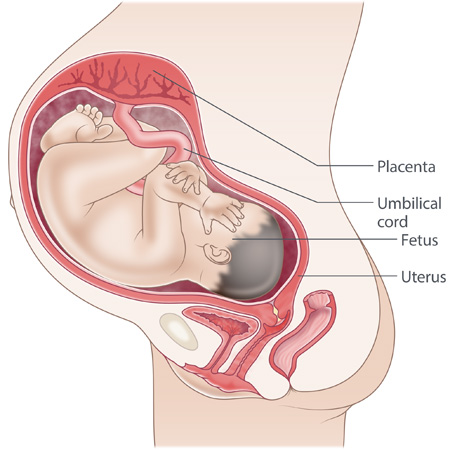
38 Weeks Pregnant: A Comprehensive Guide
Introduction
Pregnancy is a transformative journey, and the 38th week marks a significant milestone. As you approach the end of your pregnancy, your body undergoes remarkable changes in preparation for labor and delivery. This article provides a comprehensive guide to the 38th week of pregnancy, covering physical and emotional changes, fetal development, and what to expect in the coming days.
Physical Changes
- Increased Braxton Hicks Contractions: Braxton Hicks contractions are practice contractions that help prepare your body for labor. They become more frequent and intense as you approach your due date.
- Pelvic Pressure: As your baby descends into the pelvis, you may experience increased pressure on your pelvic floor muscles. This can cause discomfort, especially when sitting or walking.
- Frequent Urination: The baby’s head pressing on your bladder can lead to more frequent urination.
- Hemorrhoids: Increased pressure on the veins in your rectum can cause hemorrhoids, which are swollen and painful veins.
- Swollen Feet and Ankles: Fluid retention is common in late pregnancy, leading to swelling in your feet and ankles.
- Leaking Breasts: Your breasts may start leaking colostrum, a thick, yellowish fluid that is the precursor to breast milk.
Emotional Changes
- Excitement and Anticipation: As you get closer to meeting your baby, you may feel a mix of excitement and anticipation.
- Anxiety and Nervousness: It’s normal to experience some anxiety about labor and delivery. Talk to your doctor or midwife about your concerns.
- Mood Swings: Hormonal fluctuations can lead to mood swings and irritability.
- Insomnia: Difficulty sleeping is common in late pregnancy due to physical discomfort and anxiety.
- Nesting Instinct: You may experience a strong urge to clean, organize, and prepare for your baby’s arrival.
Fetal Development
- Size and Weight: At 38 weeks, your baby weighs approximately 6-7 pounds and is about 19-20 inches long.
- Physical Appearance: Your baby’s skin is becoming less wrinkled, and they have developed hair on their head.
- Organs and Systems: All of your baby’s organs and systems are fully developed and ready for life outside the womb.
- Position: Most babies are head down at this stage, but some may still be in a breech position.
- Movement: Your baby’s movements may become less frequent as they run out of space in the uterus.
What to Expect in the Coming Days
- Labor Signs: Be aware of the signs of labor, such as regular contractions, rupture of membranes, and bloody show.
- Doctor’s Appointments: You will have weekly doctor’s appointments to monitor your progress and check for signs of labor.
- Hospital Bag: Pack your hospital bag with essential items for you and your baby.
- Relax and Rest: Get plenty of rest and relaxation in the final days of pregnancy.
- Stay Hydrated: Drink plenty of fluids to prevent dehydration.
- Eat a Healthy Diet: Continue to eat a healthy diet to provide nutrients for your baby and yourself.
- Avoid Alcohol and Smoking: Avoid alcohol and smoking to protect your baby’s health.
Tips for Managing Discomfort
- Use a Support Belt: A support belt can help relieve pelvic pressure.
- Take Warm Baths: Warm baths can soothe aching muscles and promote relaxation.
- Elevate Your Feet: Elevate your feet to reduce swelling.
- Exercise Regularly: Light exercise, such as walking or swimming, can help relieve discomfort and prepare your body for labor.
- Get a Massage: A massage can help relax your muscles and reduce stress.
When to Call Your Doctor
- Regular Contractions: Call your doctor if you experience regular contractions that are 5 minutes apart or less.
- Rupture of Membranes: Call your doctor immediately if your water breaks.
- Bloody Show: Call your doctor if you experience bloody show, which is a sign that labor may be starting.
- Reduced Fetal Movement: Call your doctor if you notice a decrease in your baby’s movements.
- Other Concerns: Contact your doctor if you have any other concerns or questions about your pregnancy.
Conclusion
The 38th week of pregnancy is a time of significant physical and emotional changes. By understanding these changes and following the tips provided, you can manage discomfort, prepare for labor, and enjoy the final days of your pregnancy. Remember to communicate with your doctor or midwife about any concerns or questions you have. With patience and excitement, you will soon welcome your precious baby into the world.